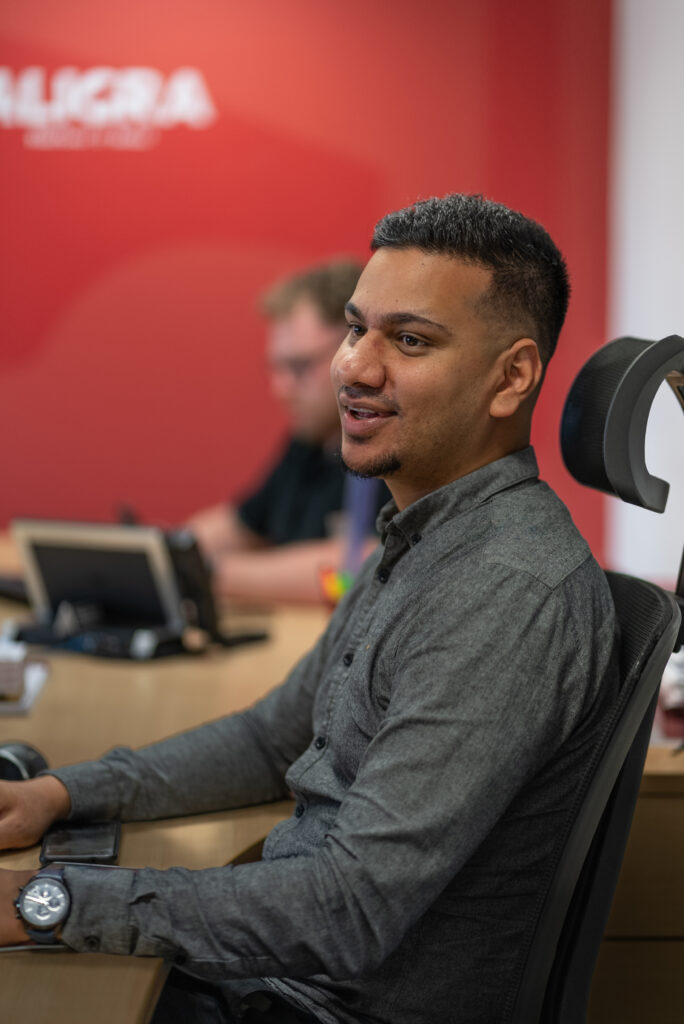“The post-lunch productivity dip is a known phenomenon,” says psychologist Dr Gary Wood. “Not eating anything too heavy helps, plus going for a walk or doing something physical after eating. It’s also best to have lunch away from your workspace.”
Likewise, Magdalena Bak-Maier, author of Get Productive, recommends going outside and getting some movement for your lunch. “Fresh air and physical exercise helps – also be clear what task you are going to tackle after lunch and what your goal is.”
However, Grace Marshall, author of How to be really productive, adds you should recognise when you need rest and fill ‘slump’ time with easy tasks. “We all have peaks – times when our attention is sharp – and troughs, or what I like to call zombie mode. Learn when your slumps are during the day and give yourself permission to stay productive with zombie tasks rather than getting frustrated and trying to do harder work.”
How to stay motivated on long-term projects
“It’s helpful to break big tasks down into smaller goals so you can tick off smaller jobs as you do them,” says Dr Sarah Connell, psychologist and founder of MindingMe Psychologists. “It also helps to give yourself little awards when you have finished your goals to keep you motivated to continue.”
Caroline Webb, chief executive of Sevenshift, agrees that our brains need a “flow of rewards” to stay motivated. “So you need to break projects down into small, tangible steps that you can easily tackle and achieve.”
In practical terms, this means when your focus is flagging, focus on achieving the smallest task. “This could be as small as sending one email – or finding an email address. But doing those tiny steps is the key to getting unstuck on something that’s going sideways,” adds Webb.
Picture yourself succeeding
When you feel your concentration starting to ebb, it can help to visualise the end result. “I often tell my clients to think what the payoff will be. So keep a notebook with your reasons, add to them and review them. Visualise the end result often and imagine what it will be like to achieve it. Try to make it vivid and conjure up the thoughts, feelings and emotions of having succeeded,” says Wood.
Are you easily distracted? Tips on being productive – live chat
Read more
Split your time into chunks
Marshall also recommends using checklists and timers to structure your time. “Set a timer, e.g. 20 minutes, and have a checklist of the five things you need to get done in that time. That way any distractions you pursue are fine as long as you do it in the timeframe and you’ve completed your five tasks.”
Take breaks little and often
Our brains are like race cars, they need pit stops to perform at their best, says Webb. “Decision quality tends to fall the longer it is since people have taken a break. Also, stepping away before returning to a task has been shown to improve the quality of problem-solving and insight. It’s like a mini version of sleeping on it.” So breaks are a good (and necessary) part of doing good, productive work.
Make a plan to achieve your goals
A lot of people feel lost when it comes to productivity and managing the complexities of achieving goals, says Graham Allcott, founder of Think Productive. Sometimes a plan with specific tasks, deadlines and timeframes can help make your goals a reality. “I’d encourage you to sit down and write down everything you are working on or want to get done. For each thing ask: ‘what’s the next physical action?’ and create bite-size things to do.” As long as you consistently take small steps towards your goals, they will soon become a reality.
Source: http://www.theguardian.com/careers/2016/apr/26/how-to-be-more-productive


